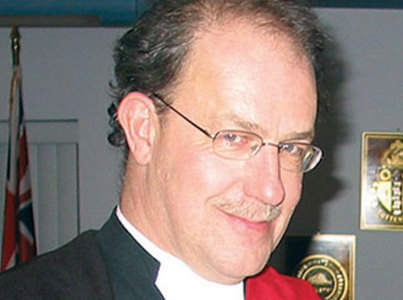Witness with HIV forced to wear a mask in court,
groups complain
Jan 30, 2008 04:30 AM
Tracey Tyler
Legal Affairs Reporter

The HIV virus will live in a dried state for year after
year after year and only needs moisture to reactivate
itself’ Justice Jon-Jo Douglas said, according to a
transcript of a Nov. 23 trial
An Ontario judge is at the centre of a misconduct investigation after insisting a witness who is HIV-positive and has Hepatitis C don a mask while testifying in his courtroom.
Three groups have complained to the Ontario Judicial Council about the conduct of Barrie judge Justice Jon-Jo Douglas, who later moved the case to a bigger courtroom in order to create more distance between the witness and the bench.
The judge refused to accept Crown counsel Karen McCleave's entreaties there was no need for such measures.
"The HIV virus will live in a dried state for year after year after year and only needs moisture to reactivate itself," Douglas insisted, according to a transcript of the Nov. 23 trial proceedings.
"This is outlandish," Bluma Brenner, an assistant professor at the McGill AIDS Clinic at McGill University in Montreal, said yesterday. A drop of human immunodeficiency virus drying on the floor "would be inactivated within 20 minutes," Brenner said in an interview.
But Douglas, a former Crown attorney appointed to the Ontario Court of Justice 10 years ago, was not prepared to continue the trial until he was satisfied "the safety and integrity of this courtroom" was protected.
"I mean, he speaks within two feet of me with two serious infectious diseases," Douglas told McCleave. "Either you mask your witness and/or move us to another courtroom or we do not proceed."
At one point, court staff returned after a recess wearing rubber gloves and placed documents touched by the witness in plastic bags.
Douglas, who continues to preside in Barrie, declined to speak with the Star yesterday.
In their Jan. 17 letter of complaint, the Canadian HIV/AIDS Legal Network and the HIV and AIDS Legal Clinic (Ontario) say Douglas's response to the witness, a complainant in a sexual assault case, reveals "shockingly discriminatory thinking" and is a "particularly extreme example of unacceptable conduct by a judicial officer."
The organizations say the case also raises questions about the extent to which judges are informed about HIV/AIDS and related human rights issues.
Their complaints target not only Douglas, but two courts – his own and the Superior Court of Justice, for failing to clearly condemn the behaviour.
The Crown applied to the Superior Court of Justice to have Douglas removed from the case for creating an appearance of bias. But Justice Margaret Eberhard declined, saying while his approach may have been wrong, Douglas had jurisdiction to take the steps he felt necessary to ensure courtroom safety.
Ontario's Criminal Lawyers Association has also lodged a complaint with the judicial council. The lawyers' group contends Douglas did not bring a judicial temperament to trial proceedings and treated a witness differently on the basis of irrelevant personal characteristics. Contacted yesterday, association president Frank Addario declined to discuss the allegations. The complaints are being investigated by a judicial council subcommittee, which will determine if a public inquiry into Douglas's fitness to remain on the bench is warranted.
Meanwhile, Douglas hastily resigned from the board of Stevenson Memorial Hospital in Alliston on Jan. 14, just over a month after he was appointed.
The controversy surrounding the witness began on Nov. 23, during the trial of a man charged with sexually assaulting a fellow inmate at the provincial jail in Penetanguishene.
The alleged victim testified he was HIV-positive and had Hepatitis C, but didn't inform his alleged attacker because he was traumatized. "I could be ... shanked," said the man, whose identity is shielded by a publication ban.
According to a trial transcript, during the lunch break, Douglas bumped into defence lawyer Angela McLeod and voiced concern the witness had been allowed to testify without the court being informed of his health status.
When court resumed, Douglas raised the issue with McCleave, the Crown attorney as well. "I am frankly shocked that in this day and age we were not advised," he said.
McCleave replied she knew of no issues arising from the witness being in the courtroom or touching "a couple of pieces of paper" that were introduced as evidence.
That's when Douglas offered his view that HIV will live "for year after year after year" in a dried state.
McCleave explained that she wasn't prepared to ask the witness to wear a mask in court when he faces no such requirement in the community. There were also practical problems with the judge's request, she suggested – the court reporter might not be able to accurately record his testimony.
Douglas refused the Crown's request to grant a mistrial, declined to recuse himself from the case and refused to consider granting bail to the accused, Lee Wilde, when it became clear the trial would have to be adjourned until the judge's concerns were addressed.
A new trial will begin Feb. 14.
An official with the National Judicial Institute in Ottawa, which has developed educational programs for judges, said while the curriculum addresses "emerging social issues," there's no course specifically addressing HIV/AIDS – though one is being planned. It should be up and running within "a couple of years," she said.